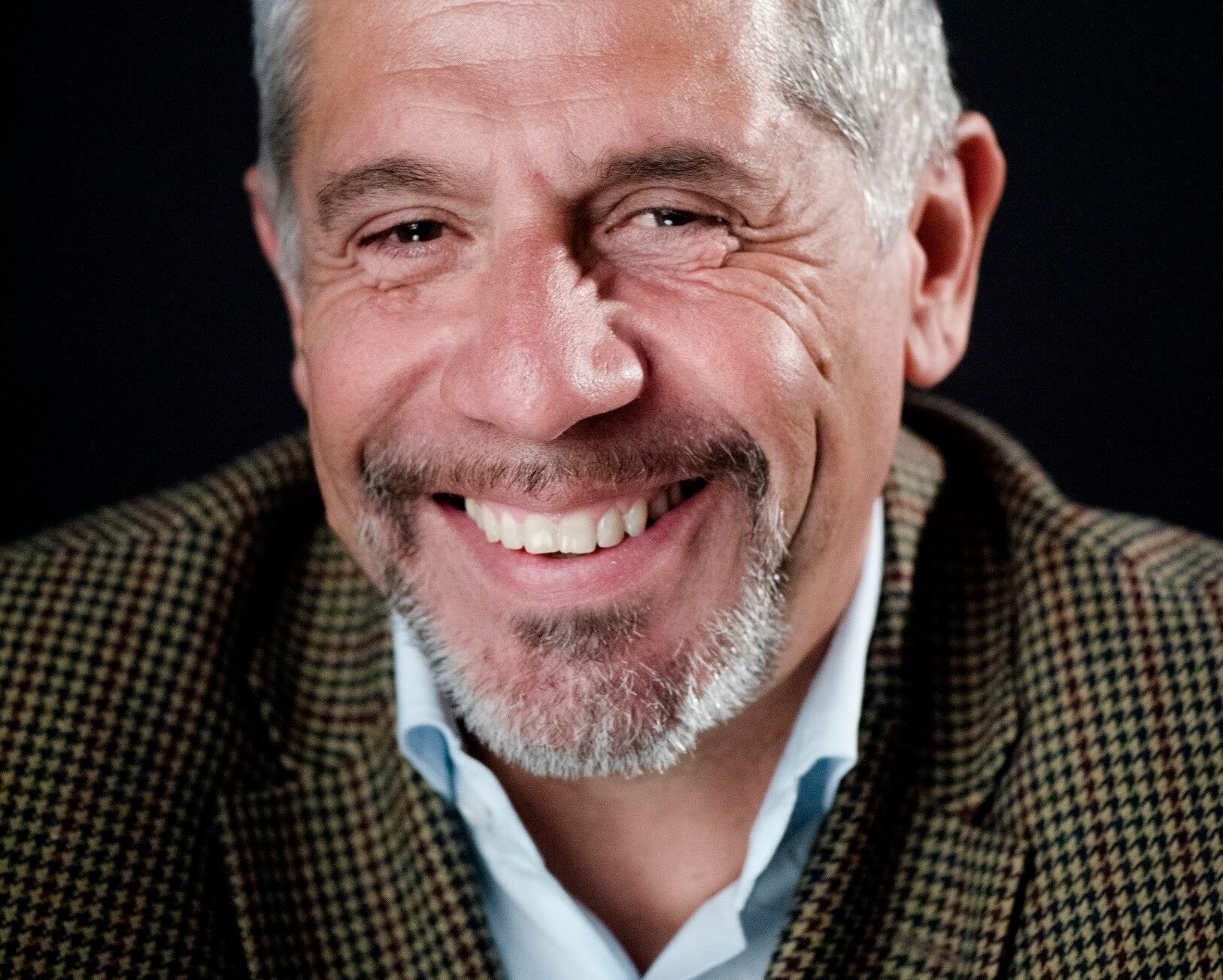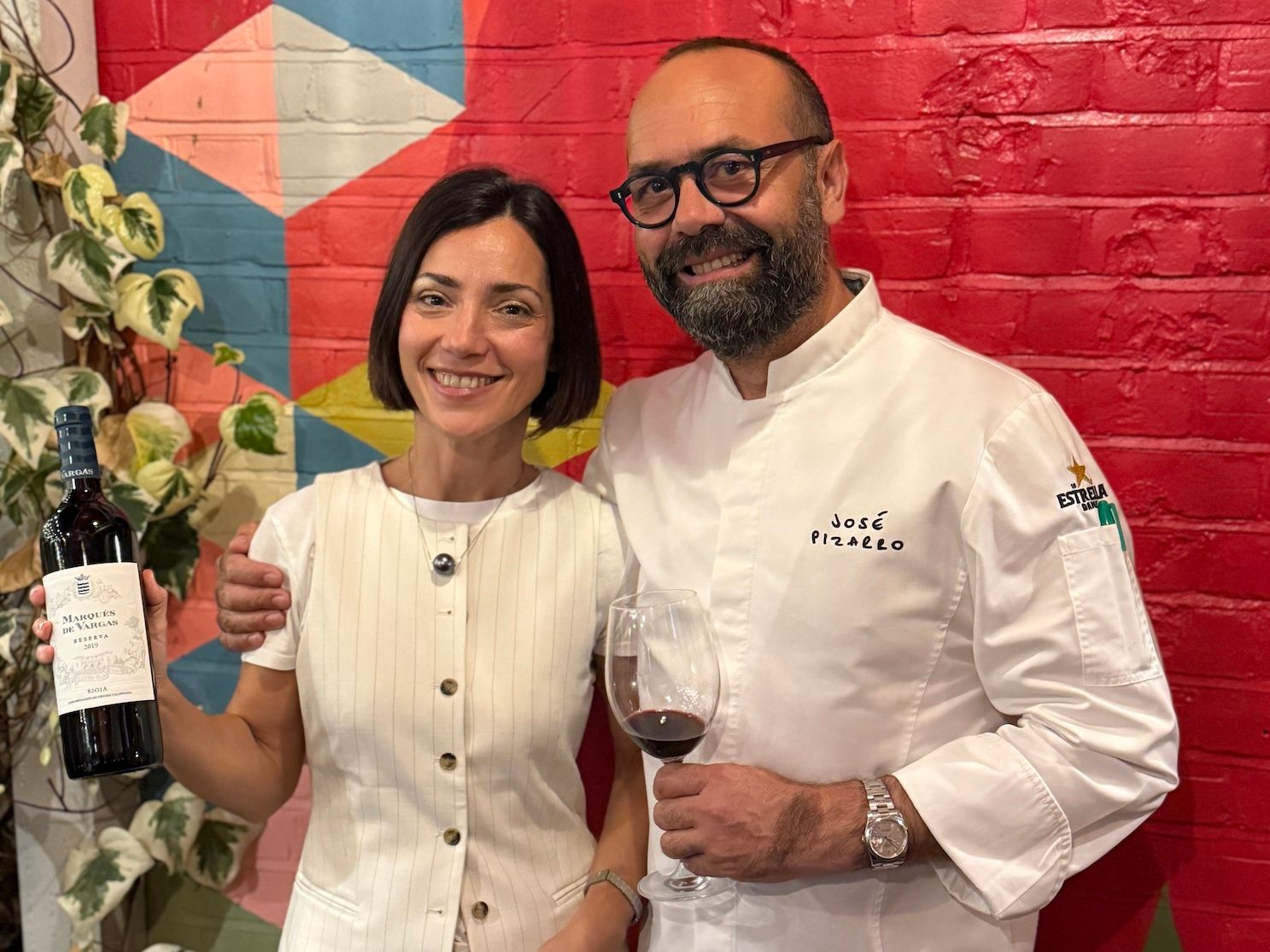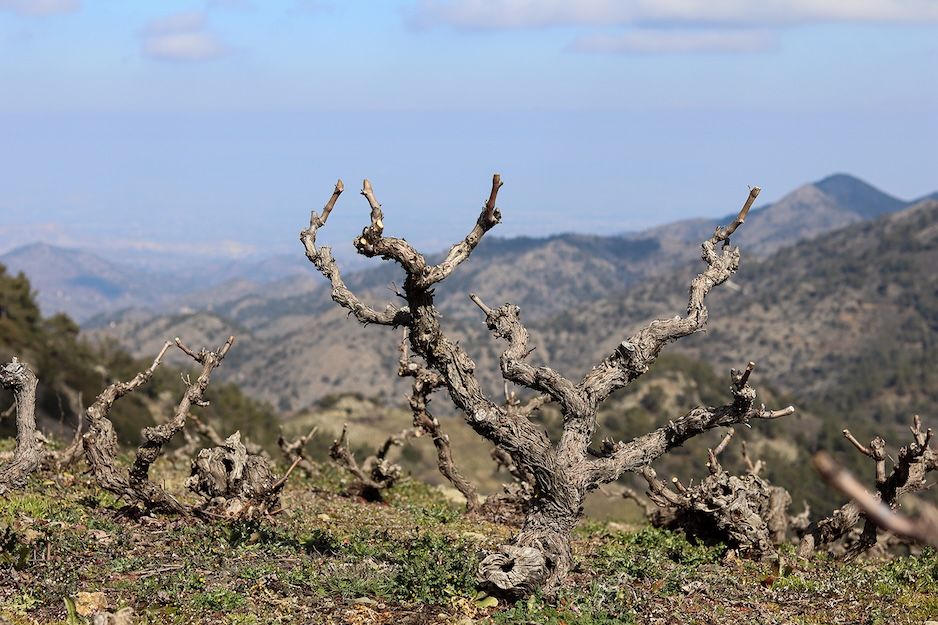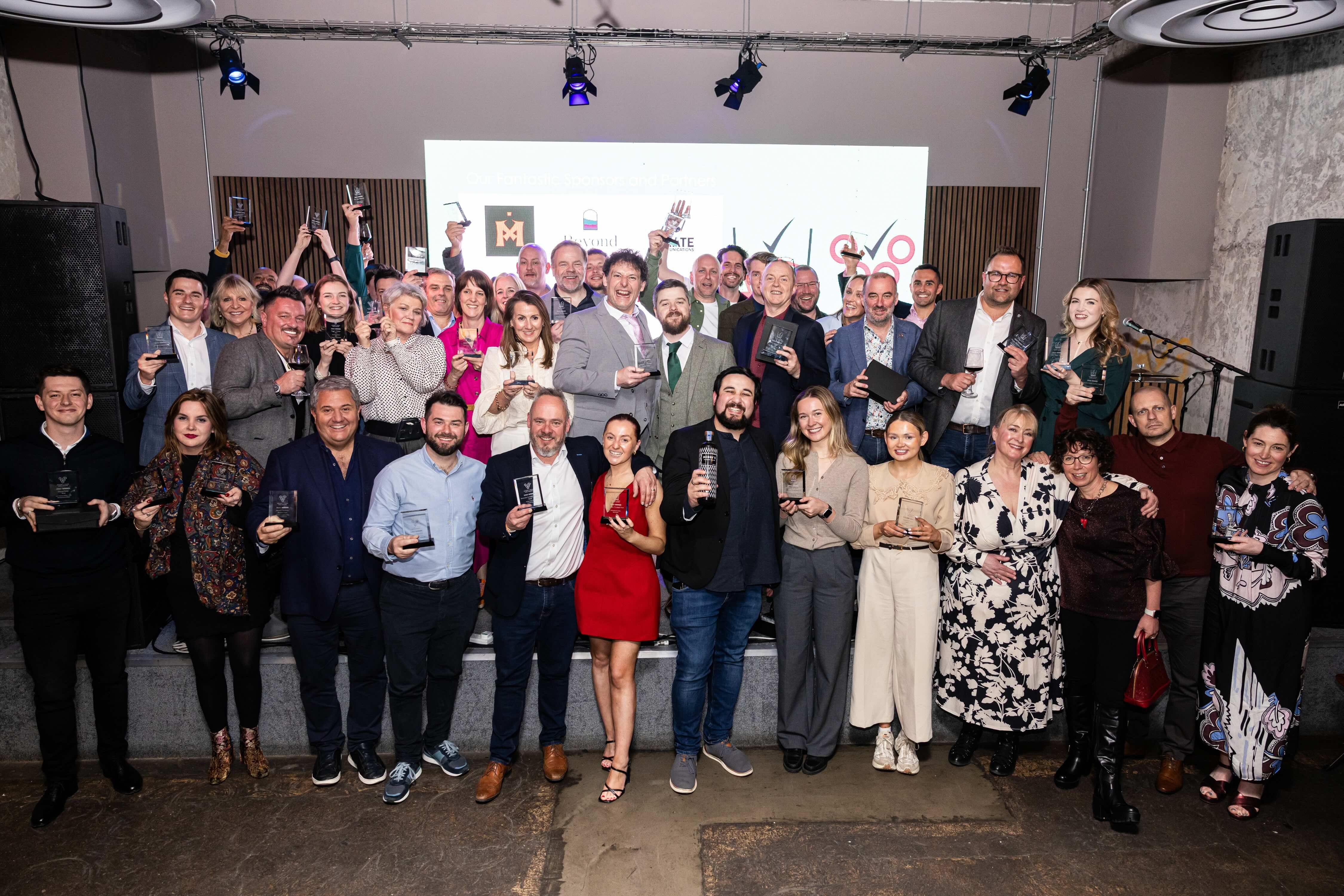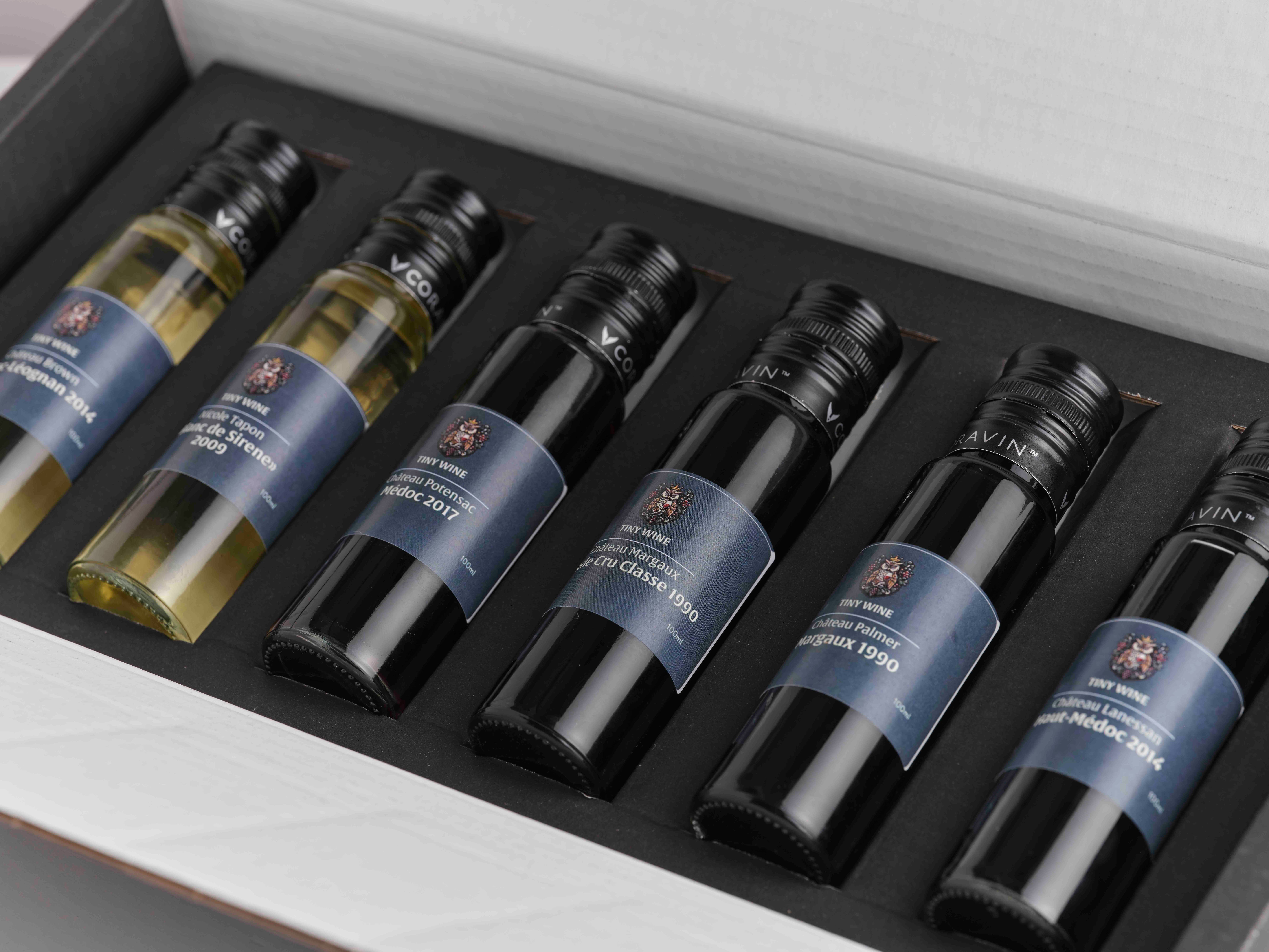Wine Future 2021 will take place online between February 23-26 with four days of keynote talks, seminars, and debates. Here’s why Pancho Campo urges you to sign up…
You made a big impact with Wine Future over 10 years ago now – why do you think it is the time to bring the event back?
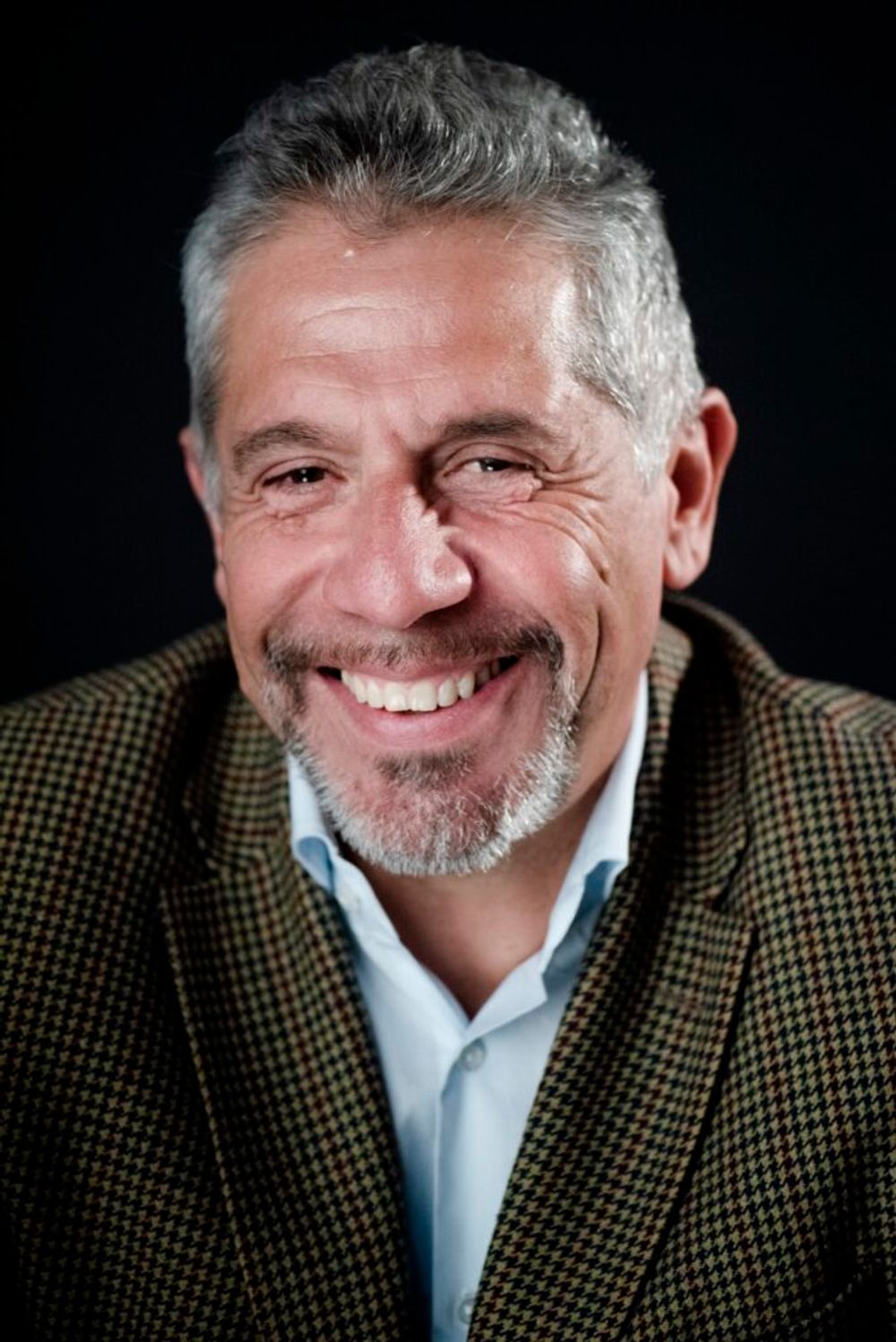
Pancho Campo is looking forward to bringing his Wine Future event back after a 12 year gap
I created WineFuture in 2009 as a response to the challenges imposed by the economic recession the world was going through and how that shaking economy was affecting the wine industry. Our society has never been in such a crucial moment. The pandemic, the resulting economic recession, the climate crisis, an overdue recognition of social problems, a tremendous lack a leadership and many others.
WineFuture is a summit to analyse those challenges, provide solutions and to inspire the many people that are going through difficult times.
What are the major themes of the event and why?
With David Furer, the co-organiser of this edition, who did similar work with our Hong Kong 2011 edition, we thoroughly researched and analysed renewing it, and spoke with experts worldwide to determine which topics Wine Future 2021 should tackle.
It was obvious that Covid-19 and its effects had to be the starting point. The economic impacts resulting from the pandemic; the climate crisis; and the numerous inequities that our society is experimenting are topics that affect every business and area of our society.
We have also included themes more specific of the wine industry such as on- and off- trade challenges, consumption trends, the use of digital marketing and social media, trading with luxury brands, issues of exports, tariffs, and many more.
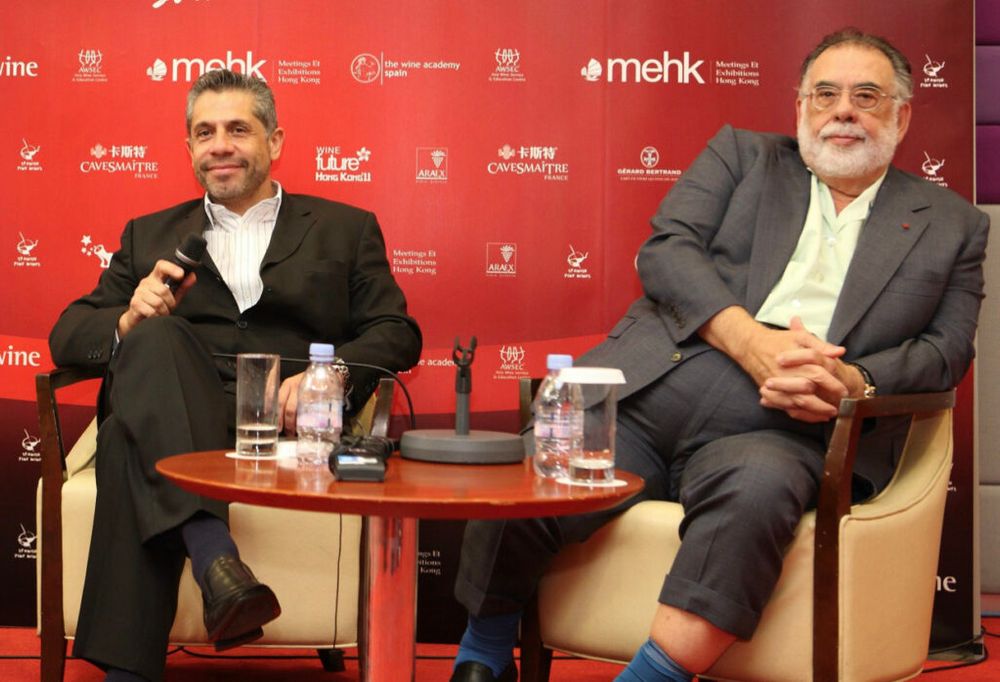
Pancho Campo with film director Francis Ford Coppola who first shared his story into wine at the Hong Kong Wine Future event in 2011
How have you chosen your speakers as you have some names you have worked with in the past?
Before choosing the speakers we chose the topics of the conference. Then we studied who could be the best possible professionals to offer an expert insight on those topics, providing solutions but also inspiration. We’ve included some names that have participated in past editions of WineFuture and in my climate change conference because they’ve always provided great content, innovations and are pro-active in adapting to new challenges. But, we’ve also added many new names along with some new subjects which speak to our time and have a key note address from film director and wine producer, Francis Ford Coppola.
Who are other key names you are excited about introducing?
There are many names within the roster of speakers that I am sure will provide tremendous content, solutions and inspiration. I am always curious to hear what Irina Bokova has to say as UNESCO’s former director-general, then there is:
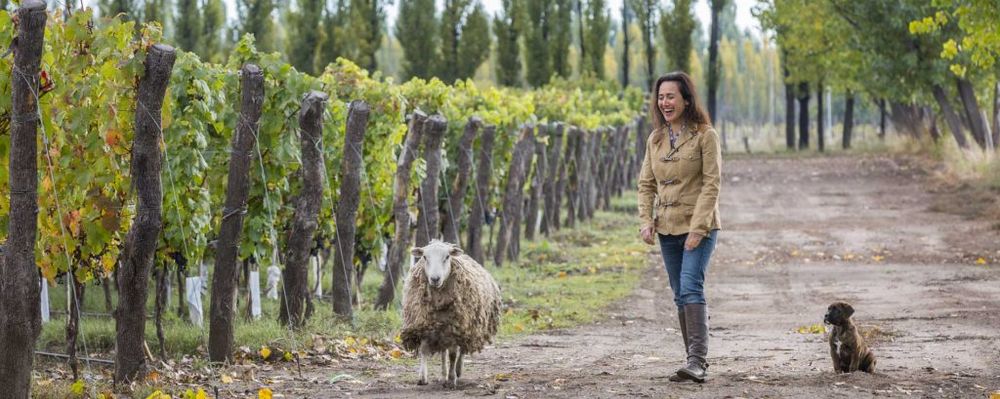
Laura Catena will be sharing her insights on Argentine wine but also the impact of Covid-19 on the industry in her dual career as a doctor
- Annette Alvarez-Peters, ex-Costco, is somebody I long have wanted to have as a speaker.
- Paul Mabray has become a leading name especially in digital marketing for the wine industry [and is set to launch a new wine search platform, Pix in the spring].
- Laura Catena, apart from being a household name in the world of Argentine wine, is a practising medical doctor in California with a dual professional view to the pandemic.
- New Zealand has recently declared the country free of coronavirus which is why I look forward to listening to what Philip Gregan, of New Zealand Wine and Nigel Greening of Felton Road from New Zealand have to say about Covid-19 and their wine industry.
- We have several speakers from South Africa [including Mike Ratcliffe of Vilafonté, and Carina Grous of Kleine Zalze, Siobhan Thompson of Wines of South Africa] which have too much to share about what they are going through is unbelievable, with the ban on alcohol, the pandemic, the lack of water resources and other challenges.
Can you give us an idea of some of the sessions that you think are must attend events?
Every session has been carefully designed and we have chosen the topic as well as the speakers meticulously. We have been working since September to create a program that I am convinced that all serious wine professionals ought to attend. We are in a pandemic that recognises no borders, races, genders and economic background with implications extending to every area of business and society.
All the aspects of the wine industry are interlinked and thereby effected with all of Wine Future 2021’s sessions possessing interconnected themes, and the solutions proposed are part of a whole.
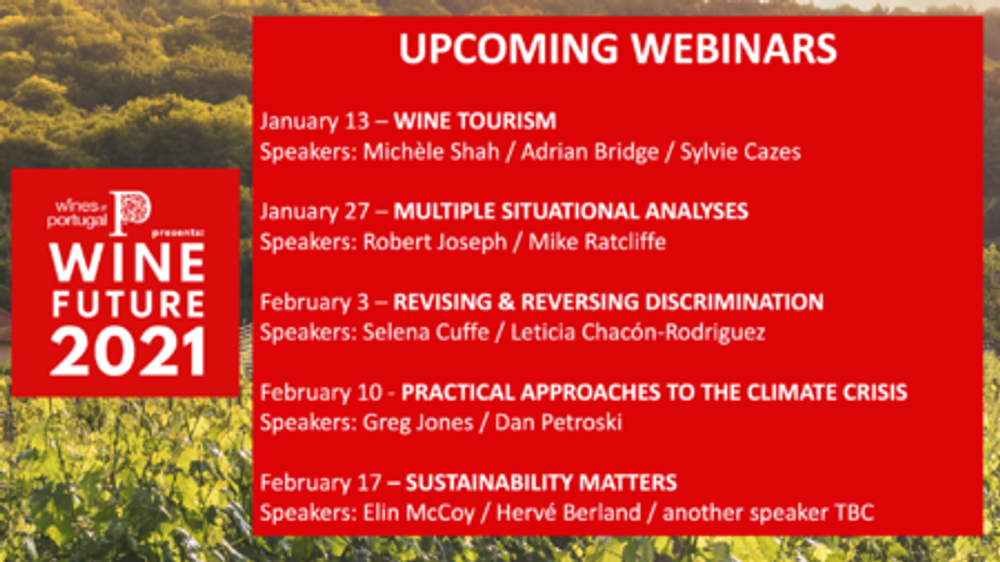
You can take part in a series of free webinars before the main Wine Future event. See above for dates and themes. Click here to register.
You are clearly having to do this online, which has its disadvantages, but is also a great way to bring people from all over the world. Who do you hope will take part?
Probably the most important disadvantage of virtual events is the lack of human interaction and networking. However, there are many good things about virtual events being the most important the democratisation of conferences. The costs are considerably reduced because we don’t have to pay venue, travel expenses, hotels, F&B, etc. This allows us to reduce the registration fee by more than 70%, but it also gives access to these kind of events to people who maybe never thought they could afford getting on a plane, paying for hotel and paying high registration fees to listen and learn from leading names in our industry.
We already have more than 400 registrations from all over the world, but I hope this new approach attracts not only CEOs, presidents and management from large and small wine companies, but also helps people working in the trenches of wine. The servers, students, sommeliers, winery retail staff, office and production staff, distributors and importers.
What are your own personal thoughts on how the wine trade has developed in the last 10 years? For the better or the worse?
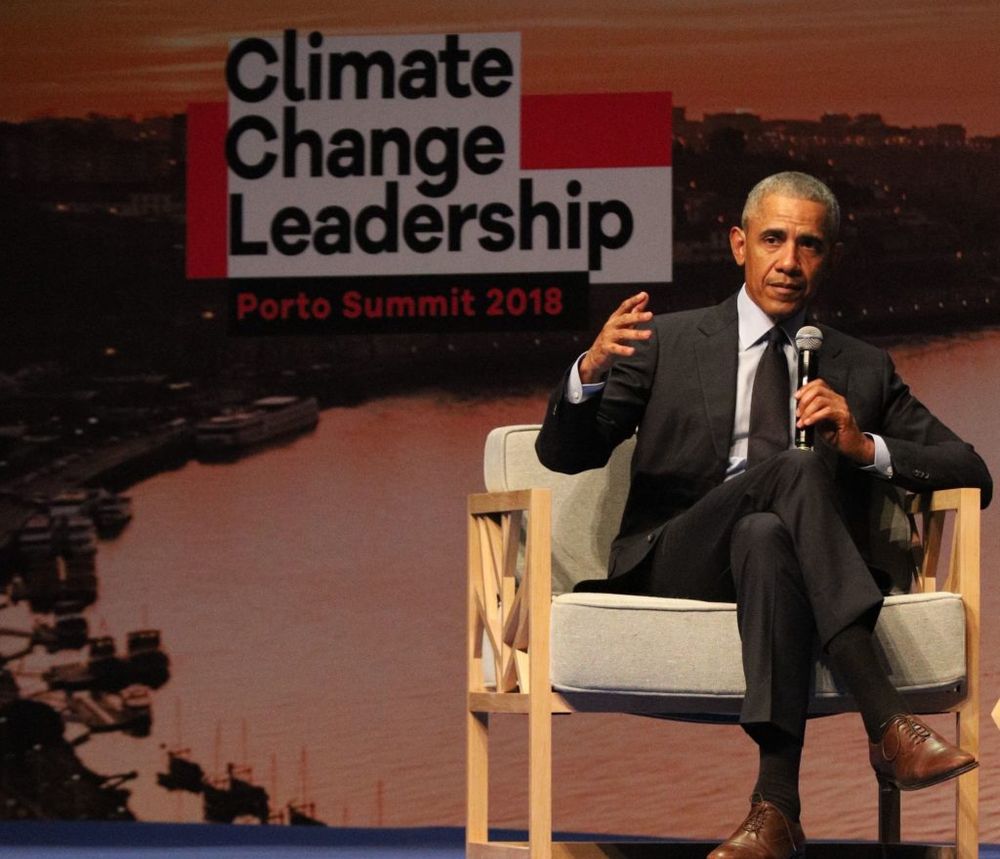
Pancho Campo has done more than his fair share in putting on major wine events over the last decade, particularly the succession of climate change conferences, featuring former President of the United States Barack Obama, whilst former Vice President Al Gore spoke at the Porto Protocol event in 2019
There are numerous things about the wine industry that have positively evolved in these last decade, especially when it comes to awareness about the environment and climate change. However, I believe the industry is failing to engage the younger generations and this can result in less people consuming wine in the near future. Marketing and communication of wine lags behind that of other industries. Wine events haven’t evolved enough while its business innovations are still a bit backwards. And there remains a certain snobbism.
What do you see as its biggest challenges now?
The biggest challenge for the wine industry at the moment is definitely the pandemic and the resulting economic repercussions. People do not realise how much this pandemic will change our society. There will be a ‘before and an after’.
However, the most important threat for viticulture is the climate crisis, which continues to impact the entire planet, we have not managed to delay or stop it with carbon emissions now at their highest level and climbing, with more and stronger climate episodes and uncertainty. Unfortunately, we are getting very close to the point of no return.
What are key lessons from outside the industry we most need to look at and take lessons from?
Every successful businessperson, athlete, and corporation has always managed to take time to learn from their competitors but also from other athletes, leaders and companies. The wine industry cannot be indifferent to this trend. There are many interesting and useful lessons that can be learnt from sports or the music business when it comes to engaging new customers and providing a more entertaining experience. We can also look at industries such as coffee, spirits and even beer.
The event is being held over four days (February 23-26) so how can people sign up?
Signing up for the conference is very easy. Go to www.wineFuture2021.com and register. The registration fee is only €120 for all four days but also it allows you to watch all the conferences and panels on demand for two months after the event finishes. For discounts go to the section called Strategic Alliances and if you are a member of any of those companies and organisations, you’re entitled to almost a 50% discount.
